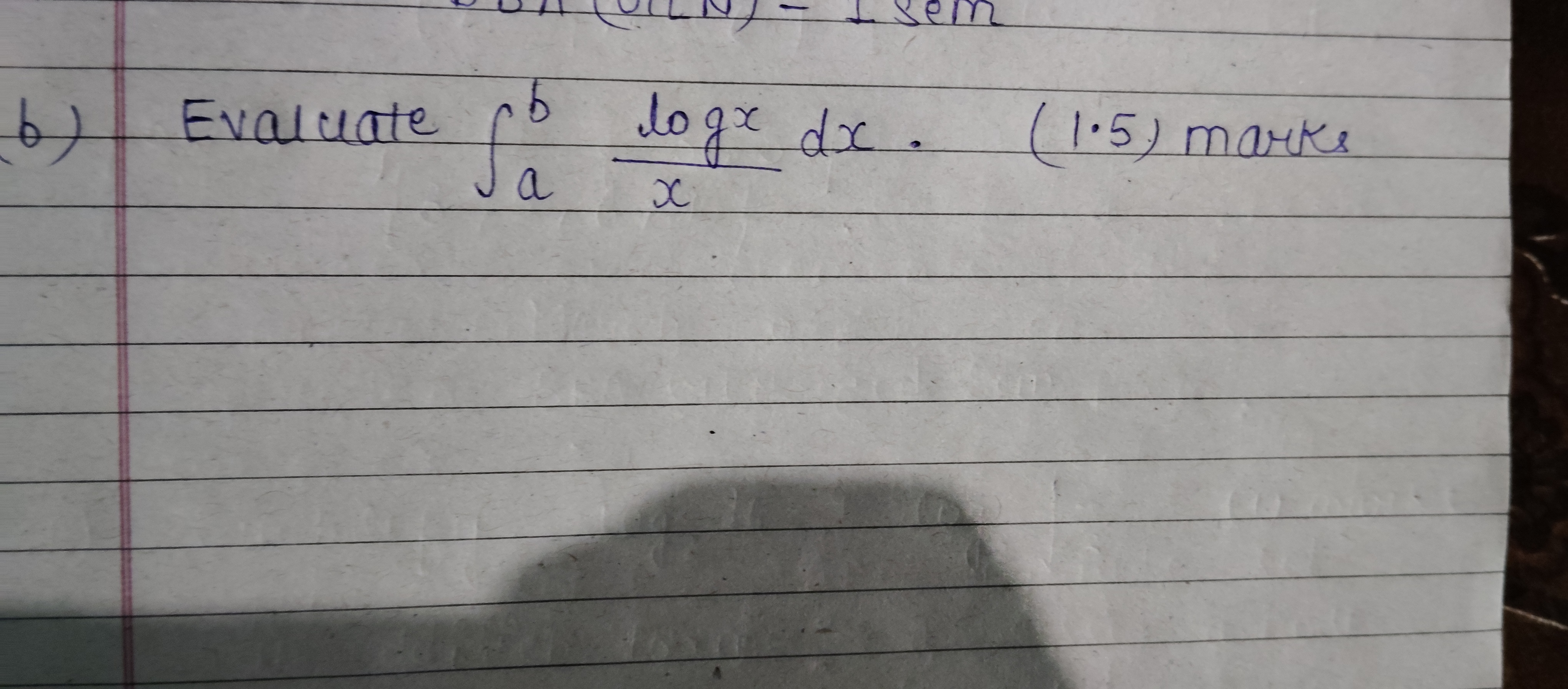Evaluate ∫(from a to b) (log x)/x dx.

Understand the Problem
The question is asking to evaluate the definite integral of the function log(x)/x from a to b, indicating a need for integration techniques.
Answer
$$ I = -\frac{\log b}{b} + \frac{1}{b} + \frac{\log a}{a} - \frac{1}{a} $$
Answer for screen readers
The final answer is: $$ I = -\frac{\log b}{b} + \frac{1}{b} + \frac{\log a}{a} - \frac{1}{a} $$
Steps to Solve
- Identify the integral to evaluate
We need to evaluate the definite integral: $$ \int_{a}^{b} \frac{\log x}{x} , dx $$
- Use a substitution method
Let ( u = \log x ). Then, the derivative of ( u ) gives: $$ \frac{du}{dx} = \frac{1}{x} \implies dx = x , du = e^u , du $$ Substituting ( x = e^u ) makes the integral become: $$ \int \frac{u}{e^u} , du $$
- Solve the integral using integration by parts
Using integration by parts, where:
- Let ( v = u ) and ( dw = e^{-u} , du )
- Then ( dv = du ) and ( w = -e^{-u} )
The formula for integration by parts is: $$ \int v , dw = vw - \int w , dv $$
Applying this, we have: $$ \int u e^{-u} , du = -u e^{-u} - \int -e^{-u} , du $$ So, $$ = -u e^{-u} + e^{-u} + C $$
- Substituting back to ( x )
Now, revert ( u ) back to ( \log x ): $$ = -(\log x) \frac{1}{x} + \frac{1}{x} + C $$
- Evaluate the definite integral from ( a ) to ( b )
Now, evaluate at the limits ( a ) and ( b ): $$ I = \left[ -\frac{\log x}{x} + \frac{1}{x} \right]_{a}^{b} $$
Calculating gives: $$ I = \left( -\frac{\log b}{b} + \frac{1}{b} \right) - \left( -\frac{\log a}{a} + \frac{1}{a} \right) $$
The final answer is: $$ I = -\frac{\log b}{b} + \frac{1}{b} + \frac{\log a}{a} - \frac{1}{a} $$
More Information
This type of integral often appears in calculus, especially related to problems involving logarithmic functions. The integral of ( \frac{\log x}{x} ) is closely related to the gamma and digamma functions in advanced mathematics.
Tips
- Forgetting to change the limits of integration after substitution.
- Not applying integration by parts correctly, especially handling constants.
- Confusing ( u = \log x ) with ( x = e^u ).